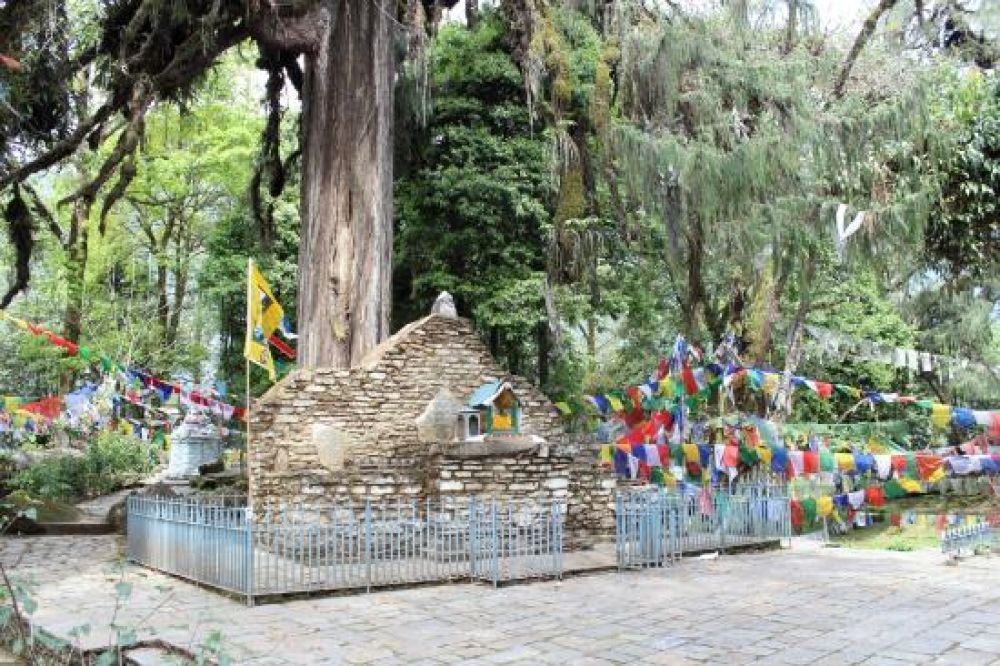

Norbugang Park is a significant historical and cultural destination in the peaceful town of Yuksom, in the West Sikkim district of the Himalayan state of Sikkim, India. This serene park holds immense importance in the history of Sikkim as it is closely associated with the coronation site of the first Chogyal (king) of Sikkim.
It was in the year 1642 when the first religious king of Sikkim, Phuntsog Namgyal, was crowned as the Chogyal by the three learned lamas. The site where this historic event took place is marked within Norbugang Park. The park houses the Norbugang Chorten, a stupa filled with relics and surrounded by prayer flags, creating a tranquil ambiance. The famous Coronation Throne, known as the Throne of Norbugang, remains as a testament to this significant event.
Historically, tourism in Yuksom and the broader Sikkim region was modest, centered around pilgrimage and exploration. It was after Sikkim's integration into India in 1975 that the area began to see a gradual increase in popularity as a tourist destination. Norbugang Park, in particular, served as a key draw for its cultural heritage and its role as a starting point for treks to the majestic Kanchenjunga, the world's third-highest mountain.
Following the recognition of Sikkim’s unique culture and biodiversity, concerted efforts were made to promote sustainable tourism practices. Norbugang Park has benefitted from these initiatives, with improved infrastructure leading to greater visitor numbers each year.
In recent times, the latest trend in the tourism sector of Sikkim, and by extension Yuksom and Norbugang Park, has been the emphasis on ecotourism and adventure tourism. Visitors are increasingly drawn to the rich natural beauty, the opportunity for trekking, and the chance to experience the still-preserved ancient local culture.
Responsible tourism practices are encouraged, and there is a growing awareness of the need to protect and conserve the environment of this quaint Himalayan state. Tourists at Norbugang Park are advised to respect the sanctity of the site and adhere to guidelines ensuring minimal impact on the surroundings.
Moreover, the government’s push towards digitization and online permits has made access to such historical sites easier. This, in turn, increases the convenience for visitors planning their trip to Norbugang Park and other attractions in Sikkim.
Today, Norbugang Park stands as a beacon of Sikkim's rich historical past, offering both local and international tourists a window into the state's origin story. Its continued popularity reflects an ongoing interest in the mystical and cultural legacies of India's northeastern regions. As tourism evolves, Norbugang Park and Yuksom will continue to adapt, ensuring that they remain cherished destinations for all who venture to this unique corner of the world.